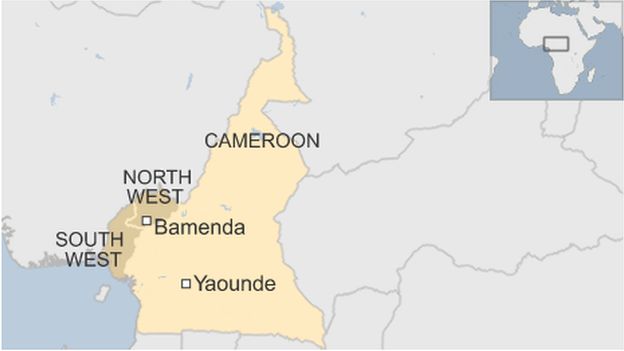It comes after at least two military police officers were killed at a security checkpoint earlier this week.
Dozens were killed last month in a violent crackdown on protests against the mainly French-speaking government.
Many English speakers accuse the Francophone majority of discrimination.
They say they are often excluded from top civil service jobs, and that the French language and legal system have been imposed on them.
The government denies the allegations and insists that it treats all citizens equally.
- Africa Live: More updates on this and other stories
- The lingering cultural effects of colonialism
- Why did Cameroon block the internet?
- Cameroon conflict timeline
Wanted
Cameroon newspapers list Sisiku Ayuk Tabe – the president of the Anglophone consortium – as among those wanted.
The paper Le Jour, which is the leading French daily in the country, says that files have been prepared and submitted to international police with a view to extraditing Mr Tabe and his colleagues.
The divisions in the central African state date back to the post-colonial settlement.
Cameroon was colonised by Germany and then split into British and French areas after World War One.

Following a referendum, British-run Southern Cameroons joined the French-speaking Republic of Cameroon in 1961.
It is now divided into the South-West and North-West regions.
Escalating tension
Demands for independence have grown in the two regions in recent years and tension has been escalating.
Anglophone activists launched a wave of demonstrations a year ago against what they see as marginalisation.

